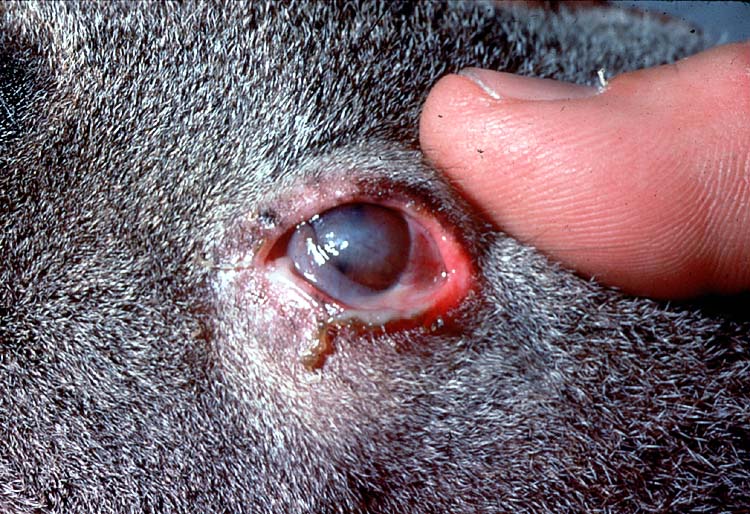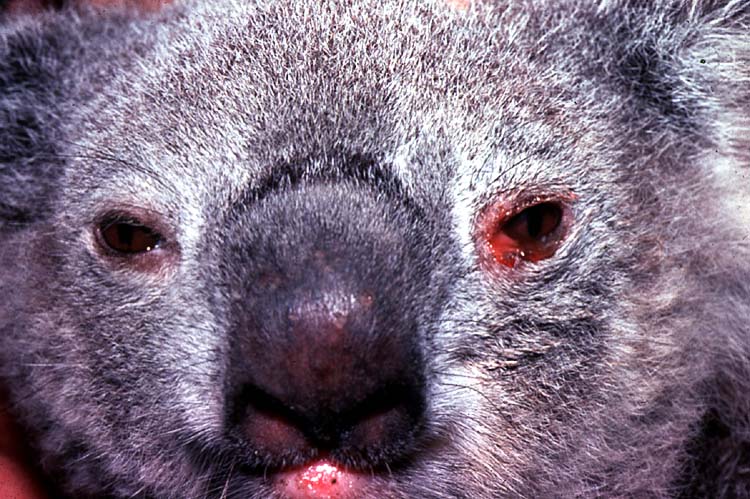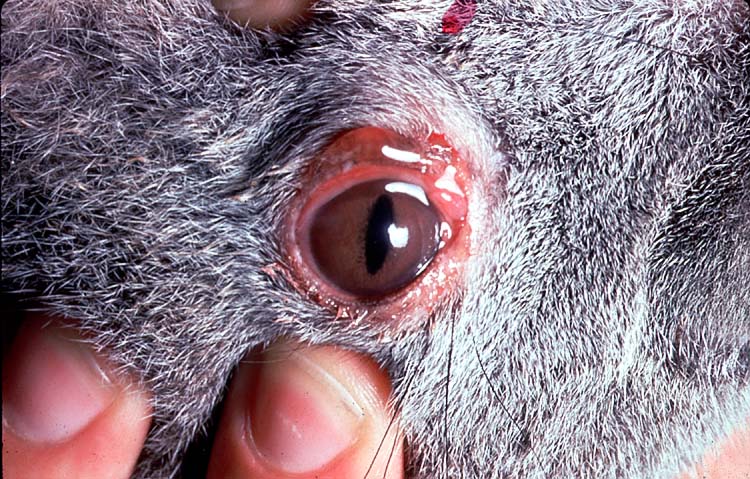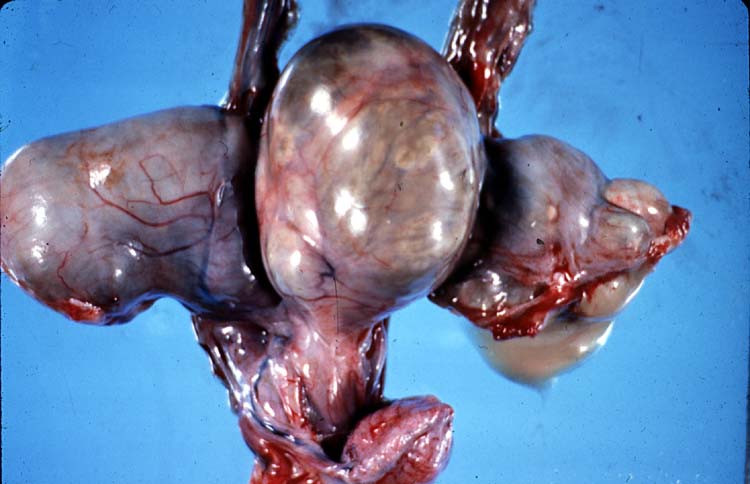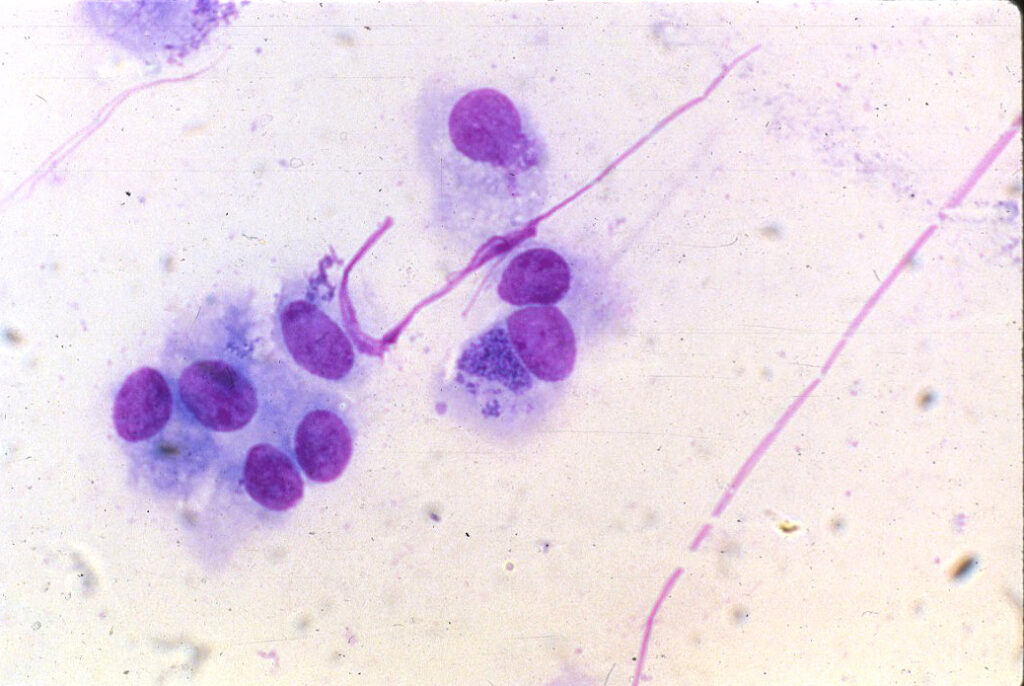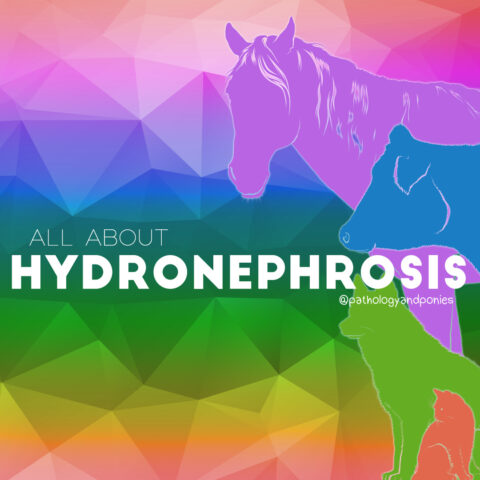Today’s path rounds are on 𝐜𝐡𝐥𝐚𝐦𝐲𝐝𝐢𝐨𝐬𝐢𝐬!
𝐖𝐡𝐚𝐭 𝐢𝐬 𝐢𝐭?
𝐂𝐡𝐥𝐚𝐦𝐲𝐝𝐢𝐨𝐬𝐢𝐬 is infection with 𝐂𝐡𝐥𝐚𝐦𝐲𝐝𝐢𝐚, a species of bacteria. You’ve probably heard of Chlamydia in people!
𝐖𝐡𝐨 𝐠𝐞𝐭𝐬 𝐢𝐭?
While Chlamydia affects many species, today we’re going to talk about Chlamydia in koalas. Chlamydiosis is actually the most common infectious disease of koalas, and has a significant impact on the survival of the species.
𝐖𝐡𝐚𝐭 𝐜𝐚𝐮𝐬𝐞𝐬 𝐢𝐭?
Most cases of chlamydiosis in koalas are caused by 𝐂𝐡𝐥𝐚𝐦𝐲𝐝𝐢𝐚 𝐩𝐞𝐜𝐨𝐫𝐮𝐦, which is present in almost all free-ranging koala populations. In fact, some studies have shown that some groups of koalas have up to 100% of the population infected! Thankfully, not all koalas infected with the bacteria will show symptoms. This bacteria, similar to the human bacteria, is 𝐬𝐞𝐱𝐮𝐚𝐥𝐥𝐲 𝐭𝐫𝐚𝐧𝐬𝐦𝐢𝐭𝐭𝐞𝐝, but can also be passed to young koalas during birth or through the milk of the mother.
𝐖𝐡𝐲 𝐢𝐬 𝐭𝐡𝐢𝐬 𝐚 𝐩𝐫𝐨𝐛𝐥𝐞𝐦?
Chlamydia likes to live within cells, causing the immune system to target those cells for destruction to try and control the infection. This can lead to tissue damage. In particular, Chlamydia targets the 𝐮𝐫𝐨𝐠𝐞𝐧𝐢𝐭𝐚𝐥 𝐭𝐫𝐚𝐜𝐭 and the 𝐜𝐨𝐧𝐣𝐮𝐧𝐜𝐭𝐢𝐯𝐚 (mucosa around the eye). Female koalas can develop 𝐩𝐲𝐨𝐦𝐞𝐭𝐫𝐚 (pus in the uterus), 𝐦𝐞𝐭𝐫𝐢𝐭𝐢𝐬 (infection of the uterus wall) and other infections. Male koalas can get infections of the testicles and prostate. These infections can be fatal in some cases. The conjunctiva typically shows redness and swelling, called 𝐜𝐨𝐧𝐣𝐮𝐧𝐜𝐭𝐢𝐯𝐢𝐭𝐢𝐬.
𝐇𝐨𝐰 𝐢𝐬 𝐢𝐭 𝐝𝐢𝐚𝐠𝐧𝐨𝐬𝐞𝐝?
Typically the findings of conjunctivitis or urogenital infection are sufficient to diagnose the bacteria in koalas. However, if the veterinarian wants to confirm the diagnosis, they can do 𝐏𝐂𝐑 to detect the bacterial DNA directly.
𝐇𝐨𝐰 𝐢𝐬 𝐢𝐭 𝐭𝐫𝐞𝐚𝐭𝐞𝐝? 𝐇𝐨𝐰 𝐢𝐬 𝐢𝐭 𝐩𝐫𝐞𝐯𝐞𝐧𝐭𝐞𝐝?
Typically koalas are treated with antibiotics, particularly 𝐝𝐨𝐱𝐲𝐜𝐲𝐜𝐥𝐢𝐧𝐞. There is also a Chlamydia vaccine that has just entered the trial stage, designed to help reduce the severity of infection and allow the koala a better chance of survival.
𝐏𝐡𝐨𝐭𝐨𝐬
1-3) Examples of koalas with conjunctivitis from Chlamydia.
4) The uterus of a koala with pyometra, showing the severe expansion of the uterus with pus.
5) Little blue dit-dots of Chlamydia within some cells scraped off the conjunctiva.
𝐒𝐨𝐮𝐫𝐜𝐞𝐬
Terio, KA, McAloose, D, St. Leger, J. Pathology of Wildlife and Zoo Animals. 2018.
Photos 1-5 © Noah’s Arkive contributors King, Rebar licensed under CC BY-SA 4.0.

